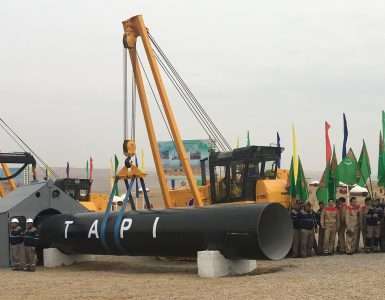The year 2015 is not going well for Saudi Arabia. The attempts of King Salman bin Abdulaziz al-Saud and his son Prince Mohammed bin Salman — who, not quite 30, is not just deputy crown prince and chief of the Royal Court but also defence minister and chairman of the supreme council of state oil company Aramco — to assert their authority in the region and in the oil prices are falling.
Barack Obama, US president, pointedly overrode Saudi concerns to reach a deal with Iran that is already transforming the regional balance of power. Concerns about Iranian influence led Saudi Arabia to intervene in Yemen, but the ill-conceived air campaign has achieved little beyond demonstrating the limitations of the Saudi military. The result is a humanitarian disaster with Houthi forces still in control of much of the north of Yemen.
Worst of all, perhaps, the US shale industry has not followed the script by obediently cutting back production as prices have fallen. On the contrary, costs have been cut and production this year will be higher than in 2014. Elsewhere, other producers have increased oil output to raise revenue. The price is back to $50 a barrel and falling.
So, what next? The kingdom could move in one of two ways. It could seek to form a coalition of forces to counter Iran’s network of alliances in Lebanon, Syria, Yemen and Iraq. That may be why representatives of Hamas and of the Muslim Brotherhood have visited Riyadh in recent weeks. The result could be a decisive intervention against the Assad regime in Syria as well as an intensification of the conflict in Yemen.
In the oil market, the kingdom could decide that, if $50 is not low enough to hurt the shale industry, it could aim for $40 and maintain the pain for longer. That could explain the heavy borrowing the Saudis have announced in the past two weeks.
This intransigent approach, however, is not immutable. The alternative is a more realistic assessment of whether Saudi’s real interests are being well served by the current policies.
The risk of even more strife is obvious. The bomb attack this month on a mosque near the border with Yemen shows that the enemy is within the gates. The threat of conflict spreading south from the Islamic State of Iraq and the Levant-controlled area of Iraq and north from Yemen is real. So is the possibility of low prices leading to more instability in the region and beyond.
It is hard to see how those outcomes match the interests of those in power in Riyadh. To ensure their own survival in power the Saudi rulers need a period
of calm.
Internally, Saudi needs reforms such as the removal of hugely inefficient subsidies. Gasoline costs 16 cents a litre, which means an estimated $80bn a year in forgone export revenue.
At the same time the oil price must be increased and stabilised. The king is 79; oil minister Ali al-Naimi is 80. Both perhaps have thought that the world oil market still operated as it did in the 1980s.
It does not, and a pragmatic regime in Riyadh would accept that Saudi’s interests lie in a stable price, perhaps at $70 to $80 a barrel, for the next five years. That requires a serious cut in production of perhaps 2m barrels per day.
Pragmatism is needed elsewhere too. The rivalry with Iran is real but there is still scope for co-operation — not least on the common objective of defeating Isis. Internationally, Saudi Arabia needs friends. Its record on human rights — with 102 people beheaded this year, according to Amnesty International — is giving the country a pariah status. Only reform and modernisation can change attitudes.
These are not easy choices and nothing is certain. On balance, a change of policy before the end of this year seems more likely than not, even if it means a transfer of power and the departure of the deputy crown prince.
Over the years caution rather than assertion has served the Kingdom pretty well. At the moment, however, rational outcomes cannot be taken for granted in the Middle East.










Add comment